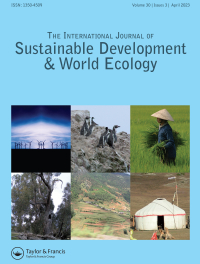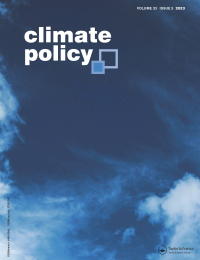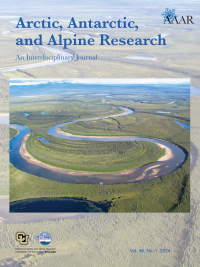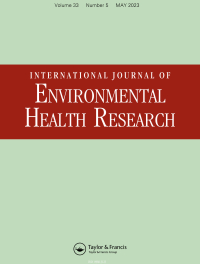

Topic Area Focus: Climate Policy
Climate policy encompasses local, national, and international policies which are created to help mitigate the risks and impacts of climate change on the environment, human health and the economy.
We invite all scientists and experts performing research in relevant or connected areas to submit manuscripts which focus on the following topics:

Establishing Expert Networks to Quantify the Digital Economy’s Indirect E&E Impact
Cultivating a new field of research across multiple disciplines requires cross country collaboration to close knowledge gaps. The digital economy’s indirect energy and environmental impacts such as substitution of digital for physical products would benefit from better quantifiable estimations. We promote the advancement of latest ideas in environmental policy through trans-domain collaborative research.

Integrated Agricultural Alterations Can Elicit Crop Climate Mitigation Benefits
Natural climate solutions like crop covers serve to reduce dangerous greenhouse gas emissions in farmlands. Yet estimating these climate benefits necessitates creating better stakeholder partnerships for environmental policy guidance. We accept constructive papers on novel climate mitigation applications.

Observing Systems Are Essential to Assess Arctic Climate Shifts
Interpreting Arctic observing systems’ data is imperative to establish viable future climate predictions. These in-depth analyses contribute to increased understanding of ice-ocean energetics systems, ocean heat accumulation, and biogeochemistry that impact global climate, marine ecosystems, and geopolitics. We are dedicated to bringing together an international expert community to produce quality research in the climate politics field.

Community Research Partnerships Crucial to Rural Food Resource Management
Environmental toxicants threaten food safety and security in geographically isolated communities. Food safety monitoring programs typically concentrate on citizen science models producing unreliable results. We seek pathways that pilot research and technology partnerships to pave new ways for environmental resource management.

Transnational & Transdisciplinary Technology Networks Are Essential for Environmental Change
Creating international coalitions to foster open data and open science stewardship amongst interdisciplinary science communities is instrumental to environmental policy and action. Technological innovation accelerating discovery-driven data use will facilitate benefits of detecting, mapping, and investigating abrupt change in Earth systems. We aim to advance innovative e-infrastructure research that addresses transnational climate challenges.

Building Effective Learning Ecosystems Equates to Equitable Environmental Justice Solutions
Geoscience academic departments must develop diverse and culturally competent workforces to holistically address climate impacts and solutions. Cultural, learning, and institutional models across the disciplines can train cohorts to serve as agents of environmental justice change. We want papers that transform environmental policy research culture through community partnerships and cross disciplinary scientist participation.
Ensuring High-Quality Research Output
All submitted manuscripts will undergo desk assessment and peer-review as part of Taylor & Francis' standard editorial processes and procedures. Please review the journal's Aims and Scope and author submission instructions prior to submitting a manuscript.


